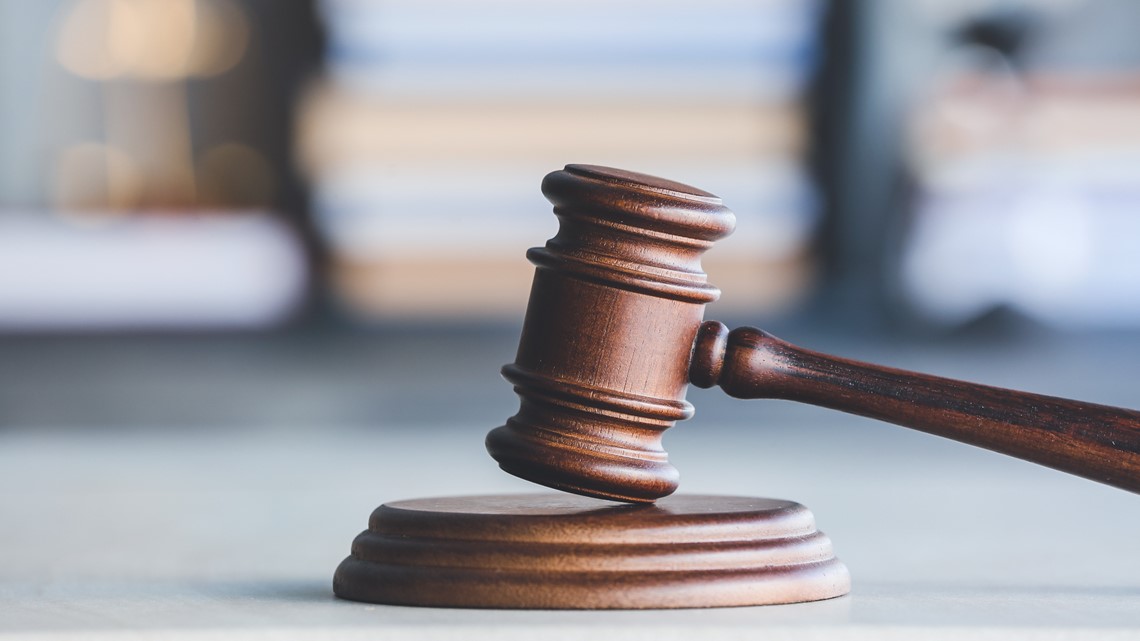Democrats and environmental groups slammed the vote, arguing that Virginia is required by law to participate in the multi-state carbon emissions auction program.
RICHMOND, Va. — UPDATE: Virginia regulators voted Wednesday to withdraw the state from an auction-based carbon emissions reduction program alongside 10 other East Coast states.
During the Air Pollution Control Board's meeting, Travis Voyles, Virginia's secretary of natural and historic resources, presented a finalized repeal of the regulation the state uses to participate in the Regional Greenhouse Gas Initiative (RGGI).
The board approved it in a 4 to 3 vote, a pivotal step in Virginia Gov. Glenn Youngkin's effort to leave the program via the state's regulatory process as opposed to legislative action from the General Assembly.
It will move to Virginia's executive branch and Youngkin for their approval. If they sign off, it will be published in the Virginia Register and, 30 days later, become effective.
What does RGGI do in Virginia?
The RGGI program puts a cap on carbon dioxide emissions from power plants that will get stricter over time across 11 states: Connecticut, Delaware, Maine, Maryland, Massachusetts, New Hampshire, New Jersey, New York, Rhode Island, Vermont, and Virginia.
Power companies have to acquire allowances for every short ton of carbon dioxide they emit, which are distributed at quarterly actions. The proceeds go to energy-efficiency programs for low-income Virginians and the Community Flood Preparedness Fund (CFPF).
Since Virginia began participating in RGGI in 2021, the state has raised nearly $590 million from auctions, which has gone to various programs statewide.
For example, in December, the Virginia Department of Conservation and Recreation (DCR) announced $51.7 million in grant awards from the CFPF, including $24 million to help Norfolk build a barrier system to protect the city from coastal flooding.
Youngkin has strongly criticized the program, arguing that it doesn't actually incentivize power companies to reduce emissions and acts as a tax on Virginians. He has also stressed his belief that his administration can withdraw via regulatory action as opposed to action by lawmakers.
In September 2022, Youngkin told 13News Now that he supports the government directly funding programs that address the impacts of climate change, as opposed to using money raised in RGGI auctions.
When did Youngkin start the process of getting Virginia out of RGGI?
The long regulatory process to leave RGGI began when the Youngkin administration submitted a Notice of Intended Regulatory Action (NOIRA) to the Air Pollution Control Board in September 2022, which was followed by a 30-day public comment period.
Months after that period ended, the administration put forth an actual repeal of the RGGI regulation, which was followed by another public comment period, 60 days long this time, that ended on March 31.
Throughout this process, Democratic lawmakers and environmental groups have opposed the administration's move, saying the Clean Energy and Community Flood Preparedness Act enacted in 2022 requires the state to be a part of RGGI.
In a September letter to the board, Democratic state lawmakers outlined the benefits of Virginia's participation in the program, citing a report that shows a drop in emissions and electricity prices across RGGI states.
Officials, environmental groups react to board vote on RGGI
Youngkin praised the board's decision in a statement Wednesday afternoon.
“Today’s common sense decision by the Air Board to repeal RGGI protects Virginians from the failed program that is not only a regressive tax on families and businesses across the Commonwealth, but also does nothing to reduce pollution,” Youngkin wrote in a news release.
Attorney Nate Benforado with the Southern Environmental Law Center (SELC), a group long opposed to Youngkin's efforts on RGGI, said it was "a disappointing day."
"With this action, the administration has decided it would rather circumvent the law than listen to the General Assembly and the clear voice of Virginians who know RGGI is working," Benforado wrote.
The Virginia League of Conservation Voters (LCV) also slammed the vote as "illegal."
"Today's vote by Governor Youngkin's rigged Air Board is a blatant end-run around the legislature and a handout to big polluters at the expense of Virginia communities that are now on their own to combat dangerous flooding," Virginia LCV Executive Director Michael Town wrote in a news release.
Jay Ford, a Virginia advisor for the Chesapeake Bay Foundation, shared a statement saying that the RGGI repeal will "set back efforts to protect Virginia homes and businesses from flooding" and slow down work to restore rivers and streams.
"Participation in RGGI is more important than ever as climate change adds new challenges to Chesapeake Bay restoration," Ford wrote. "About one-third of the nitrogen pollution in the Chesapeake Bay comes from air pollution that eventually falls to the ground or water."
.png)









 English (US) ·
English (US) ·